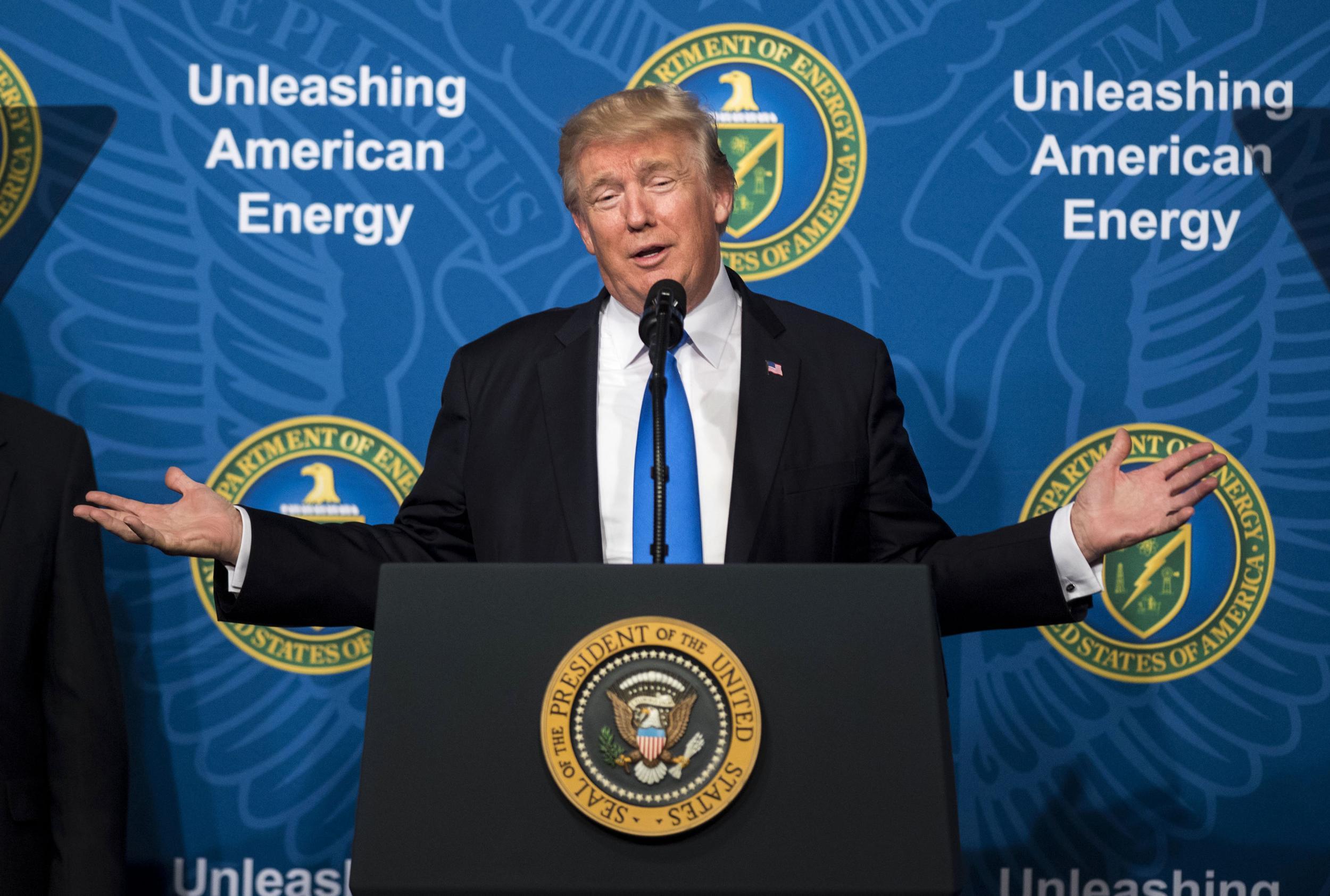Trump administration to 'cut renewable energy office budget by nearly three-quarters'
Mr Trump proposed a two-thirds budget cut to the same office last year

Your support helps us to tell the story
From reproductive rights to climate change to Big Tech, The Independent is on the ground when the story is developing. Whether it's investigating the financials of Elon Musk's pro-Trump PAC or producing our latest documentary, 'The A Word', which shines a light on the American women fighting for reproductive rights, we know how important it is to parse out the facts from the messaging.
At such a critical moment in US history, we need reporters on the ground. Your donation allows us to keep sending journalists to speak to both sides of the story.
The Independent is trusted by Americans across the entire political spectrum. And unlike many other quality news outlets, we choose not to lock Americans out of our reporting and analysis with paywalls. We believe quality journalism should be available to everyone, paid for by those who can afford it.
Your support makes all the difference.The Trump administration has reportedly suggested cutting funds for the Energy Department’s renewable energy office by nearly three-quarters, as part of the President's shift away from "green" energy development.
The cuts to the Office of Energy Efficiency and Renewable Energy (EERE), which helps to transition the US to a clean energy economy, are reportedly even deeper than the two-thirds budget reduction Donald Trump proposed last year.
“It shows that we’ve made no inroads in terms of convincing the administration of our value, and if anything, our value based on these numbers has dropped,” one EERE employee told the Washington Post, speaking on condition of anonymity.
A draft of the President’s proposed budget for fiscal year 2019 shows the administration wants to lower the office’s budget from $2.04bn this year to $575.5m in 2019, according to the Post.
The draft suggests cutting research into fuel-efficient vehicles by 82 per cent, bioenergy technologies by 82 per cent, and solar energy technology by 78 per cent. It would also cut funding for research into geothermal, hydro and wind power.
Congress has the final say in budget appropriations, and it is unlikely legislators will implement the full, 72-percent cut suggested by Mr Trump. The President recommended reducing the EERE budget to $636.1m in 2018, but Congress did not implement the change.
It is unclear whether the documents viewed by the Post were preliminary drafts of the President’s budget, or completed versions. The White House told the Post that it would not comment on any pre-decisional documents prior to the release of the official budget.
A spokesperson for the Energy Department said she would not comment on the budget before its release, but urged anyone questioning the administration's approach to "simply look at our record".
"Last year the Energy Department awarded hundreds of millions of dollars to solar and wind energy," Press Secretary Shayln Hynes said. "Though it may not fit into the narrative of the environmental lobby and their pundits, the truth is that Secretary Perry believes that there is a role for all fuels – including renewables – in our energy mix."
Mr Trump has made his preference for natural gas and “clean coal” known, boasting in his recent State of the Union address that he had “ended the war on clean coal” and made America “an exporter of energy to the world”. (The Energy Information Administration deemed the US a net exporter of energy shortly before Mr Trump took office.)
Last week, the President implemented a tariff of up to 30 per cent on solar panels made abroad, angering green-energy advocates. In March of last year, he signed an executive order scrapping the Obama administration's Clean Power Plan and ordering the reduction of environmental regulations on the energy industry.
At a coal conference in West Virginia on Wednesday, a Trump administration adviser told industry insiders he was “here to help”.
“I went to Washington, DC, for one purpose and that was to help create coal jobs in the United States. That's my total purpose for being there,” said Doug Matheney, the special adviser in the Department of Energy's Office of Fossil Energy, according to Axios.
He added: “I'm not a researcher, I'm not a scientist, I'm an advocate for the coal industry."
Join our commenting forum
Join thought-provoking conversations, follow other Independent readers and see their replies
Comments